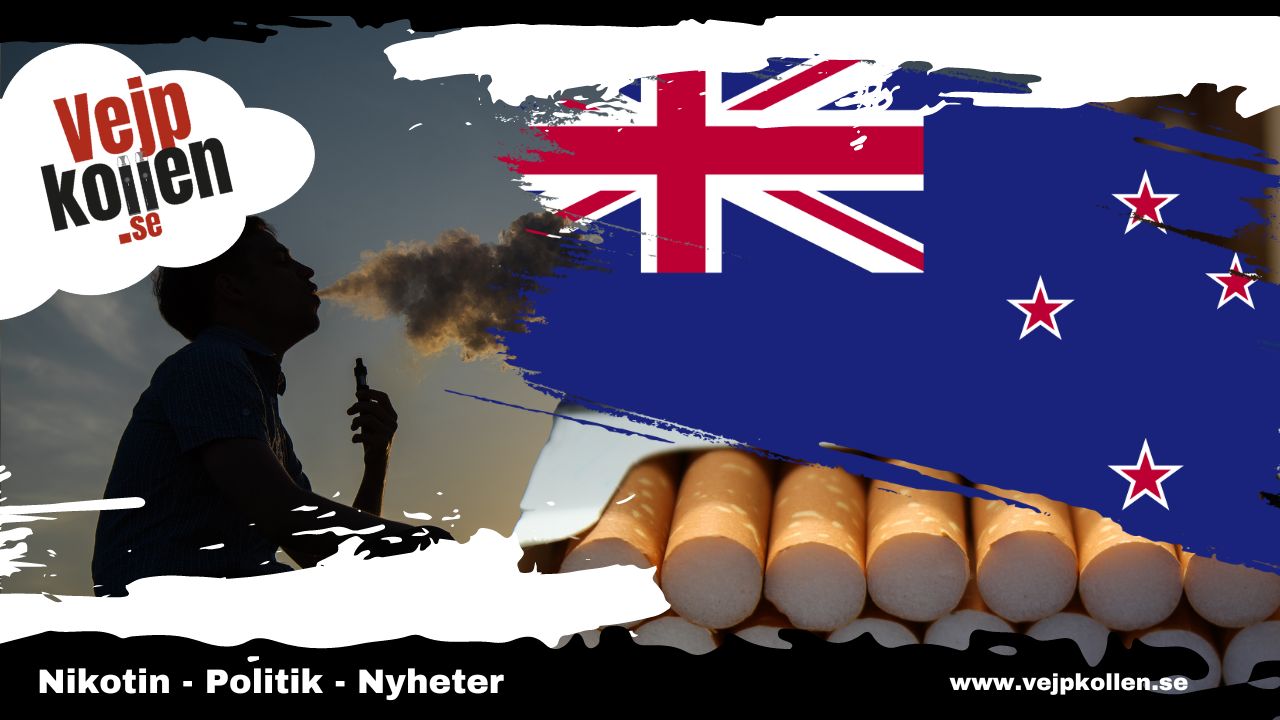New Zealand has announced it will ban disposable vejps and increase fines for those selling the products to minors. The country has switched from left to right-wing government and seemingly from a crackdown on cigarettes to an even tougher crackdown on e-cigarettes. Among the first things the conservative government did was to tear up the country's world-leading, high-profile smoking ban.
The decision is part of the government's drive to prevent young people from taking up the use of single-use weapons, it is reported, and comes after a shift in the country's political landscape.
The new legislation, unveiled by Deputy Health Minister Casey Costello, follows shortly after New Zealand repealed its previous law introduced by the previous government. That law would have required lowered nicotine levels and imposed a lifetime ban on cigarettes for people born after 2008. Vejpkollen has previously written about New Zealand's world-leading, radical measures against smoking - which were later cancelled.
Shifting focus from smoke to vapour
Previously planned bans and laws were passed by the previous government, led by the New Zealand Labour Party and the then Prime Minister Jacinda Ardern and was due to come into force next year. However, an election intervened and in November 2023 the conservative Nationalist Party took over the country's government along with the neoliberal ACT and populist New Zealand First.
The new government's announcement has raised vociferous criticism among health experts and organisations since its release.
- We are horrified and disgusted. This is a huge setback for world-leading and excellent health measures," Richard Edwards, a public health expert at the University of Otago, told the BBC.
With the new government, led by Prime Minister Christopher Luxon, the focus has instead shifted to regulating 1TP8Industry tougher. According to Health Minister Costello to "protect young people".
Following in the footsteps of Australia
Under the new rules, retailers selling vejp to children under 18 could be fined up to NZ$100,000 (around $556,000), while individuals could be fined NZ$1,000 (around $5,600). In addition, rules will be introduced to prohibit the sale of e-cigarettes with images or names that could attract young people. The country is thus following in the footsteps of big brother Australia, something Vejpkollen also written about earlier.
Several countries have taken similar measures against disposable e-cigarettes. The UK's former Prime Minister, Rishi Sunak, announced last year that the country would introduce a ban on disposable vejps. Even there, with the unofficial justification of protecting young people.
Strong criticism from the WVA
The World Vapers' Alliance (WVA) expresses deep concern about New Zealand decision to ban single-use vejp. The alliance says the country is close to becoming smoke-free, but now warns that this ban could undermine the progress made in reducing smoking.
The New Zealand Ministry of Health has announced that the ban aims to reduce the use of e-cigarettes by young people. The new rules ban the manufacture and sale of all non-rechargeable and non-refillable vapes, including disposable containers such as pre-filled tanks, pods and cartridges.
"Negative consequences for public health"
Alberto Gómez Hernández, policy officer at the World Vapers' Alliance, comments on the new ban on their website:
"Preventing young people from using nicotine products is important, and strict age limits should be maintained to achieve this goal. However, banning disposable vejp and various pods for adult consumers will have negative consequences for public health and jeopardise the progress towards a smoke-free society that has been achieved over the past decade. This ban does not recognise the important role that disposable vejp plays in helping smokers switch to less risky alternatives."
Mr Hernández further elaborated on the potential consequences of the ban:
"New Zealand's progress towards becoming smoke-free is a great example of how effective harm reduction strategies can be. Unfortunately, this ban on all non-refillable vejps risks undermining this progress." he says.




